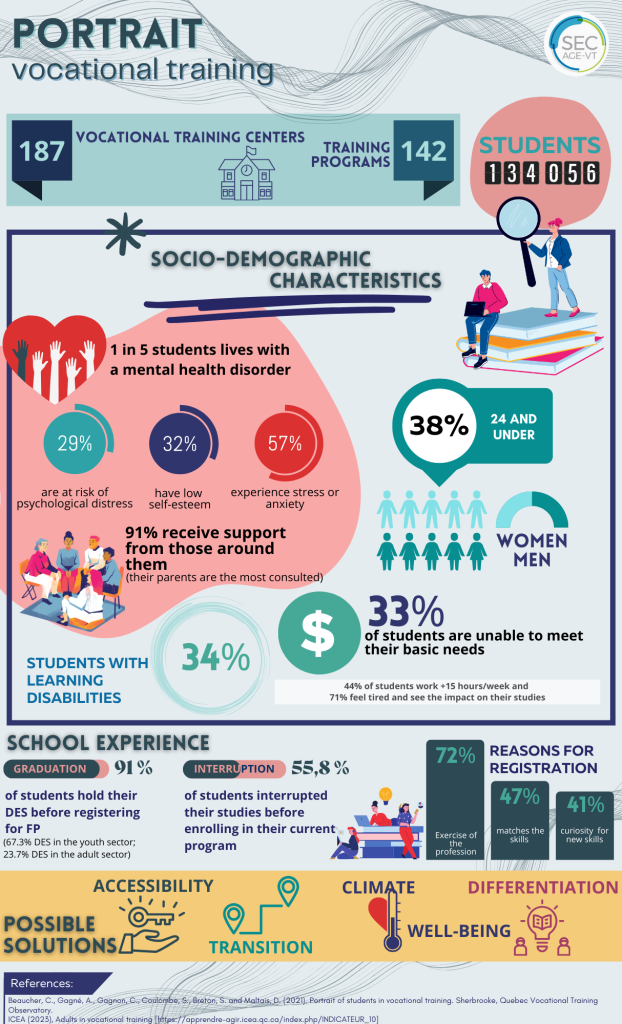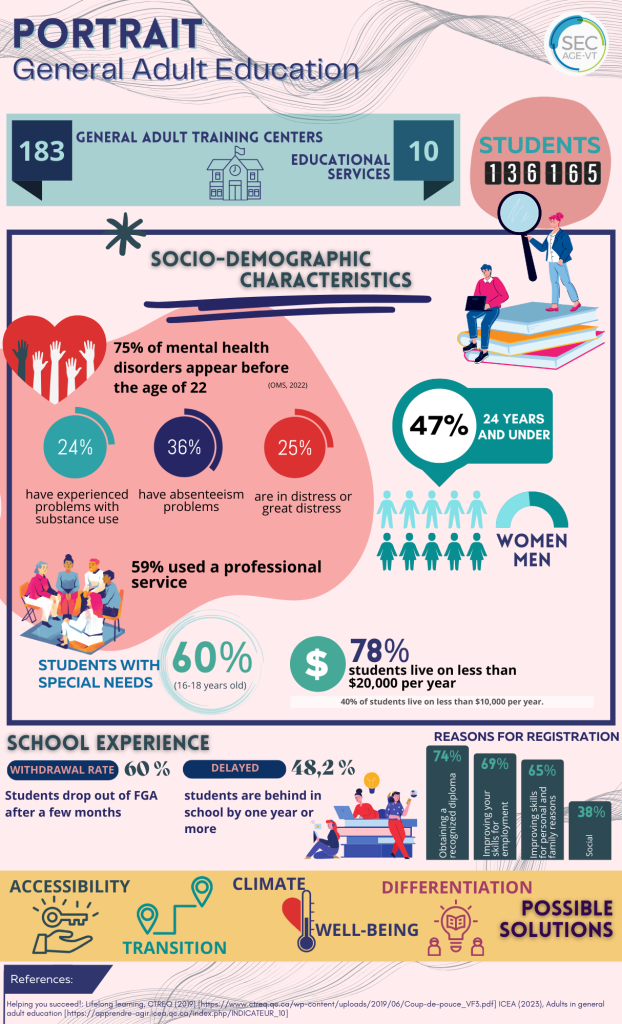Who Are They?
When we talk about our students in adult education and vocational training, we often refer to the diversity of the learners. We talk about individuals coming from various backgrounds and life paths who are resilient and persistent adults, but who will still face challenges in their learning journey.



Their Needs
However, some factors remain universal: the needs that allow adults to learn in a healthy and safe environment, regardless of their differences.
Digital Integration
Digital tools can enhance adult learning by providing access to online resources and efficient communication methods. The use of digital technology enables students to engage in their role as active citizens.
Relevance and Contextualization
Adult learners value learning more when they see its application in their daily lives. The contextualization of real-life situations helps make learning more meaningful and visible.
Engagement and Motivation
To enable learning, the student must feel engaged in their journey. The student should be involved in the development of their learning plan. It is important to provide them with a stimulating and welcoming environment.
Social Interactions
Interactions with peers and teaching staff are essential, even in adulthood. They promote the exchange of ideas, discussions, and the sharing of experiences, in addition to having an impact on academic perseverance.
Trust and Respect
Learning environments for adults must be built on a foundation of mutual trust and respect. Adult learners often have experiences and knowledge to share, and we must recognize their expertise.
Soft Skills
In addition to specific knowledge, adult learners need to develop soft skills such as problem-solving, effective communication, and critical thinking.
Recognition
Recognizing and celebrating the achievements of adult learners, even the small ones, helps strengthen their self-confidence and motivation to continue learning.
The need for active learning, which involves active and participatory teaching methods that engage students in the learning process through discussions, hands-on activities, and projects, addresses the learning needs of adults.

